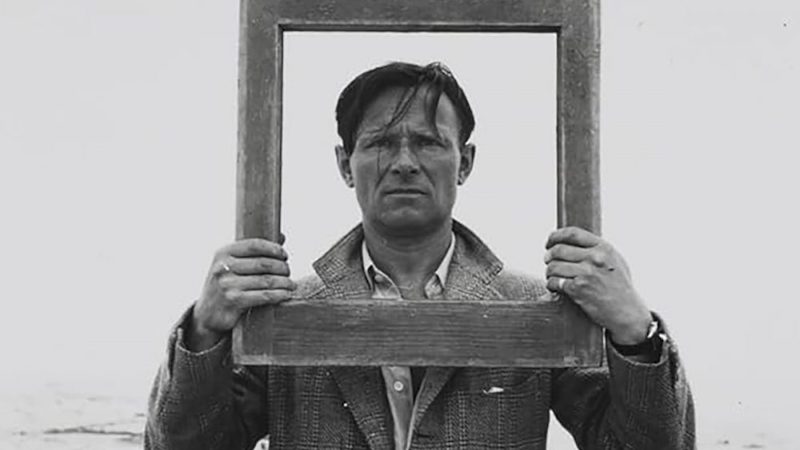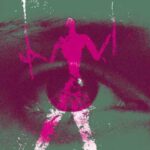Dave Robicheaux is an amalgamation of swashbuckling detective, political activist, and Catholic theologian. A literary emblem of Raymond Chandler’s theory that the crime investigator is modernity’s substitute for the medieval knight, the protagonist of most of James Lee Burke’s novels is a flawed and complex hero whose struggles against the mafia, serial killers, child predators, and bigots and bullies of fascistic ideologies magnify into stories with implications so large that they feel borderline cosmic.
“The most important battles happen in places no one cares about,” Robicheaux is fond of declaring. The sociopolitical and spiritual significance of the seemingly provincial is a view that the character shares with his creator. Burke was born in Houston, and raised on the Gulf Coast of Louisiana. He earned his Bachelor’s Degree at the University of Louisiana, and a Master’s in English at the University of Missouri. Before writing multiple bestselling mysteries, and earning the rare distinction of two-time Edgar award winner and Guggenheim fellow, Burke worked as a truck driver, social worker, land surveyor, and college professor.
From his vantage point in the Southern sticks, on the Louisiana coast, Skid Row Los Angeles, where he was in social work, and Wichita, Kansas, where he taught creative writing, Burke has watched his country evolve, devolve, progress, and regress on issues trivial and fatal. He wrote many great novels, including The Lost Get Back Boogie, which before earning a nomination for a Pulitzer Prize set a publishing industry record for most rejections, before creating the character for which is most famous.
Throughout his five-decade writing career, the prolific 83-year-old author has written a series of books about the Holland family, featuring a sheriff and attorney on their own quests for justice, and several standalone novels and short story collections. It is Dave Robicheaux, however, who narrates most of Burke’s tales of good and evil, love and hate, and pity and terror. The Vietnam veteran, recovering alcoholic, former New Orleans homicide detective, and current sheriff’s detective for New Iberia Parish in New Iberia, Louisiana— Robicheaux’s longtime hometown—is also Burke’s steadiest and sturdiest vessel for the author’s gift for drama, dialogue, and infusion of grand ideas into intimate stories of crime and suspense.
Burke first introduced readers to Dave Robicheaux in the 1987 novel, The Neon Rain (1987). As a homicide detective living in the French Quarter, Robicheaux commits himself to solving the murder of a victim few others care about—a black prostitute who appeared to have a history with drugs. In typical crime genre fashion, the intrepid detective discovers that what, at first glance, seemed like a predictable murder of interpersonal conflict is actually the crack in the ice exposing the depths of a conspiracy implicating corrupt police brass and malevolent forces at City Hall. As much as he battles the criminal underworld of New Orleans, Robicheaux wages war against his own demons—namely alcoholism, the trauma haunting his mind with images of death in Vietnam, and an ethical conflict separating his beliefs about law and order, democracy, and restraint of power from his behavioral penchant for cutting constitutional corners and using violence in his own crusade for justice. He makes enemies with his commanders, and soon finds himself suspended from the force, but that doesn’t stop him from launching his own vigilante campaign for truth and righteousness.
The second Robicheaux novel, Heaven’s Prisoners (1988), adds two crucial and eternal elements to the Robicheaux equation—New Iberia and Alafair. No longer a police officer, Robicheaux lives in the Bayou town of New Iberia. While he and his wife are enjoying their quiet and romantic lives, a plane crashes in a lake near their home. The former detective valiantly saves the life of a young Salvadoran girl he finds among the wreckage. Alafair becomes his adopted daughter, and a continual source of love, joy, and worry throughout the book series. Her ambition as a journalist and artist often leads her into the same dark attics of humanity that her father routinely explores. As she falls into danger, Robicheaux must protect not only the abstract ideals of fairness and justice, but the all too tangible reality of his daughter’s life.
The third mainstay in the detective’s world—when he is an agent of the law in all forms, official and unofficial—is his best friend and former partner, Clete Purcel. Described as the “libidinous trickster from folklore” and the “closest thing to the Arthurian round table in modernity,” Clete is a hard drinking, hard living renegade whose devotion to his own code of morality is as heroic as it is reckless. His greatest aid and enemy, Robicheaux tells readers, is “inside his own breast.”
Together, Robicheaux and Purcel collide with “powers and principalities,” to use Biblical language that the protagonist would appreciate—namely, factions of organized crime. The evil does not end there, however. James Lee Burke demonstrates a sophisticated understanding of power similar to the late Robert Kennedy, who as a Senator in New York and Attorney General in his brother’s administration, fearlessly declared open season on the mafia and racketeering outfits. Learning in the process that, in the words of journalist David Talbot who wrote an outstanding study of the Kennedy brothers, “institutions like the CIA sometimes become so entwined with the criminal underworld, it was difficult to tell them apart at the operational level.”
Robicheaux’s investigations and crusades enable him to make similar discoveries regarding elements of local, state, and federal government; taking survey of how illegal syndicates collaborate with members of public institutions to undermine the promise of American democracy. The battles of Robicheaux—almost all of them transpiring in places no one cares about—implicate our political system and its failure to protect the natural environment and its own citizens, especially those who live in poverty far out of sight and mind of the powerful.
Throughout his life, Robicheaux has undergone a series of gruesome losses that puts him in proximity with Job—the Biblical character who God allowed Satan to test by robbing him of everything he ever loved. Burke’s recurring hero has lost three wives, many friends and colleagues, and at various stages, faith in his country and fellow man. All of his suffering follows the early loss of his mother, who was murdered in fashion similar to the corpses he examines in cheap motel rooms, darkened alleys, and the swamps of Louisiana.
…the border separating history and the present, ghosts and their living ancestors, ephemeral evil and the behavior it produces, is undefined.As the book series developed, Robicheaux crossed a threshold in human understanding. While insisting that he has no special wisdom, he has often observed that the border separating history and the present, ghosts and their living ancestors, ephemeral evil and the behavior it produces, is undefined.
In the novel, In the Electric Mist with the Confederate Dead (1993), Robicheaux receives counsel from the most peculiar of visitors—an old soldier of the Confederate army. The villain of Light of the World (2013) has an inability to evade the laws of physics that would appear otherworldly. In the newest novel, A Private Cathedral (2020), Robicheaux and Parcel meet Gideon, an assassin who might have the ability to travel through time in the service of evil. An image from a Mussolini rally contains a figure who bears enough resemblance to Gideon that even the most rational of Robicheaux’s colleagues cannot adopt a dismissive posture.
In every case of the seemingly supernatural inserting itself into the travails of Robicheaux, Burke is careful to allow the possibility of rational explanation. For example, hours before meeting the Confederate soldier, Robicheaux unknowingly sipped on a Dr. Pepper laced with a hallucinogenic. It is the extraordinary possibility dangles overhead the reader as it does the character. We all must choose what to believe.
The novels have become increasingly theological and sociological, and with the higher stakes of the stories, Burke’s prose has intensified…The novels have become increasingly theological and sociological, and with the higher stakes of the stories, Burke’s prose has intensified—taking on the proportions of Milton’s poetry. Like the climax of a John Coltrane saxophone solo, the Robicheaux series has steadily built into an explosion of ecstasy and agony: The passion for justice soaring to a rhapsodic and superb flight providing an investigative sweep of the smallest and largest mysteries of human struggle.
In The Tin Roof Blowdown (2007), Robicheaux returns to New Orleans in 2005 after Hurricane Katrina combined with the negligence of the federal government to drown one of America’s greatest cities, leaving many families to fend for themselves on the rooftops of flooded buildings and in the squalor of the Superdome, a football stadium turned makeshift shelter. After the Bush administration ignored warnings from the Army Corp of Engineers to repair the levees of Louisiana, and FEMA moved at a fatal pace of lethargy to respond to the city’s needs, the world’s wealthiest nation appeared weak, incapable, and insensitive to its poorest citizens.
Robicheaux and Parcel are searching for the murderers of two looters, and discover that the victims had, along with other thieves, also robbed a drug addicted priest of his boat when he was in movement to save parishioners taking shelter in his church. Unable to make it to the cathedral in time, the congregants die under water.
One of the criminal gang members, Bertrand Melancon, longs to account for his crimes, including a brutal rape he watched his friends commit as a teenager, and has a spiritual ache for absolution. The epilogue of the novel has Robicheaux reflecting on who he recently met and what he experienced with the urgency and solemnity of a midnight prayer:
“Sometimes at twilight, when Clete and I are out on the salt and we can look northward at the vast green-gray misty rim of the Louisiana coastline, I have a fantasy about Bertrand Melancon and my old friend Father Jude LeBlanc, whose only trepidation in life was his fear that the uncontrollable shaking in his hands would cause him to drop the chalice while he was giving Communion.”
In my fantasy, I see Bertrand far out on the water, pulling on the oars, his arms pumped with his task, the ruined city of New Orleans becoming smaller and smaller in the distance, a great darkness spreading across the sky just after sunset. The blisters on his hands turn into wounds that stain the wood of the oars with his blood. As the wind rises and the water becomes even blacker, he sees hundreds if not thousands of lights swimming below the surface. Then he realizes the lights are not lights at all. They have the shape of broken Communion wafers and the luminosity that radiates from them lies in the very fact they have been rejected and broken. But in a way he cannot understand, Bertrand knows that somehow all of them are safe now, including himself, inside a power vessel that is as big as the hand of God.
John Keats famously wrote that “beauty is truth.” As Burke’s prose has become more beautiful, it is effectively juxtaposed with the profane of the criminal underworld, seedy strip club, and rough cut beat cop. The linguistic mélange provides representation of the collision creating wreckage and debris in the universe of Burke’s artful construction. As Robicheaux has evolved in that universe, he has not only dusted the demons inside himself while enforcing the law, but also become an action-oriented advocate for what theologian John Dominic Crossan calls “ethical eschatology.”
In theological systems of belief, “eschatology” deals with judgment and enforcement of humanity’s final destiny. Most forms of eschatology are apocalyptic, causing religious believers to anticipate an ultimate act of catastrophic proportions that will forever alter the universe. Crossan submits that ethical eschatology differs in its emphasis on human agency: People do not passively anticipate Armageddon, rather “God waits on people” to “do something about the evil in the world.”
The dangers of eschatological devotion are manifest throughout history, and Robicheaux has often confronted killers, terrorists, cult leaders, and fascists who believe they are running errands for God. He does not possess their megalomania, and his solidarity with the oppressed, abused, and demeaned, places him forever on the side of the good, but Robicheaux does seem to act in the interest of a cause greater than any manmade law or institution.
Just as he believes that there is a mysterious and ephemeral source of evil in the world, Robicheaux has also come to believe that his fantasy regarding Bertrand Melancon is not so outlandish to eliminate all faith. There is also a mysterious source of kindness, justice, mercy, and redemption.
Robicheaux acts on an ethical imperative that he is under demand to routinely choose what source he will serve, replenish, and empty into his own agenda. When he violates a suspect’s constitutional liberties by employing violence as an interrogational method, he feels guilty for betraying his oath, but also concern that he has confused his sources of inspiration.
As he narrates the episodes of his ongoing conflict with corruption, predation, evil, and his own private demons, readers can find entertainment, but also provocation to contemplate mysteries far beyond the scope of any police procedural.


















